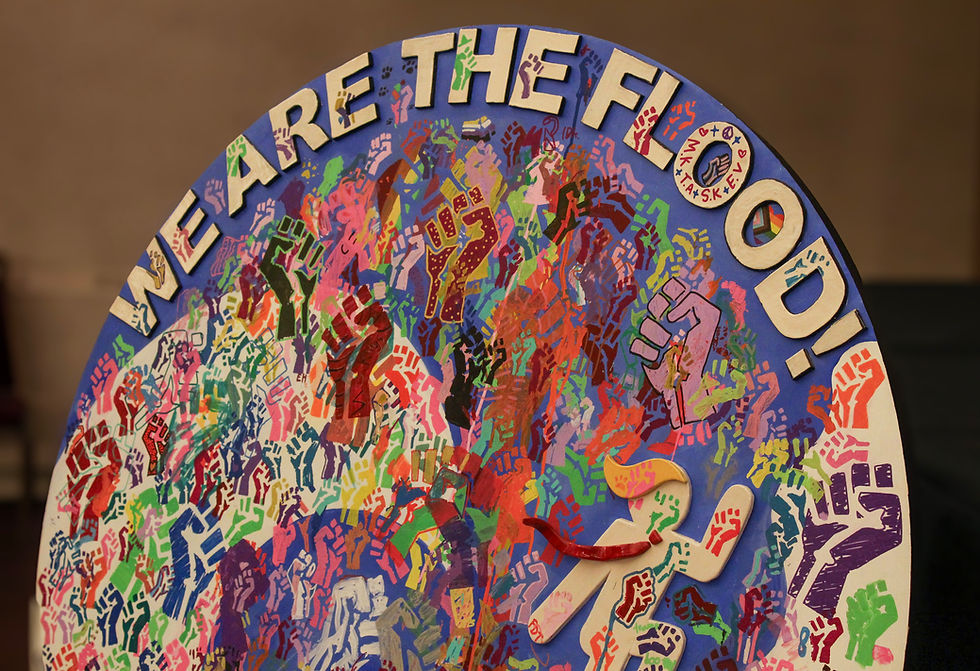WU is still affiliated with the United Methodist Church. What does it imply?
- Collegian staff
- Nov 28, 2022
- 2 min read
Updated: Nov 28, 2022
Alan Cohen
Staff Writer

For many years, Willamette University (WU) has been accepting students and faculty regardless of their faith or religious conviction. In fact, many students believe that WU cut ties long ago with the Methodist Mission. Nonetheless, Willamette still has an official affiliation with the United Methodist Church (UMC), and, although two of them are currently vacant, the Board of Trustees saves three seats for representatives of the UMC.
The United Methodist Church is a Protestant denomination that is currently affiliated with 107 higher education institutions in the United States, including WU.
Section 1.7.2 of the WU Bylaws states that “in recognition of the long standing relationship between the university and the United Methodist Church (UMC), there will be three representatives of the regional conference on the Board of Trustees: the Bishop [...] who has the right to attend any meeting of the Board, including executive sessions, and the right to participate in all discussions, but without the right to vote or make motions; plus a clergyperson and a lay representative who are nominated by the Bishop in consultation with the Trusteeship Committee, and elected by the Board to three-year terms.”
According to the Administrative Secretary to the Board of Trustees, Colleen Kawahara, “Willamette's Board is without the UMC clergy and lay representatives. The current bishop has announced her retirement so we are waiting until the new bishop is appointed to have those spots on our board filled."
The WU website states that “United Methodist students have access to a denominationally-based scholarship and loan program, as well as some specially designated Willamette funds.” This scholarship is provided by the United Methodist Higher Education Foundation (UMHEF) up to $4,000 exclusively for UMC members. According to the UMHEF website, for an institution to partner with UMHEF, it needs to meet certain criteria, including a “clearly defined church relationship,” which Willamette fulfills with its formal affiliation.
Ineda Pearl Adesanya is the University Chaplain and Director of Spiritual and Religious Life. She “provide[s] spaces for wellbeing and connection through programming and one-on-one care sessions.” Adesanya noted that “the Chaplain’s office is not even a Christian office at all. It provides for the inner well-being of students, staff and faculty, and it’s not only for people who are religious, but also for people who recognize they need help with their inner life.”
“The school no longer has a hard affiliation with the Methodist Church,” Chaplain Adesanya said. “We come out of the Methodist tradition. [The founders] were actually unaffiliated Protestant Evangelical Christians, but Willamette later became a Methodist institution of higher learning under the leadership of the Methodist Bishop.” Adesanya also mentioned that “in the past, there was a decision made to discontinue that hard affiliation with the Methodist Church,” and that “the Bishop is no longer in charge of the University.” This means that, even though the UMC is still represented on the Board of Trustees, and a special scholarship is offered exclusively to Methodist students, WU remains religiously independent and values students coming from all sorts of religious backgrounds (or lack thereof).
WU does not have an intention to disaffiliate with the UMC in the near future, and therefore remains, as Chaplain Adesanya stated, “an independent, secular, non-sectarian University with a purely symbolic Methodist affiliation.”




I disagree with the claim that Willamette's affiliation is "purely symbolic." That's as naive as saying the British monarchy is purely symbolic: it may not have absolute power, but it still plays a major role in influencing public opinion, giving the institutions of actual power legitimacy, and most importantly projecting the political prowress and hegemony of the state as a global power. Similarly, the Methodist Church has a nonabsolute rule, but it still serves as a poignant and pervasive reminder of Willamette's predominantly white institutions, its history as an American colonial project, and that students who don't fit into either those institutions or projects will never have the financial, social, or political privileges that "UMC" (and essentially white Christian students)…